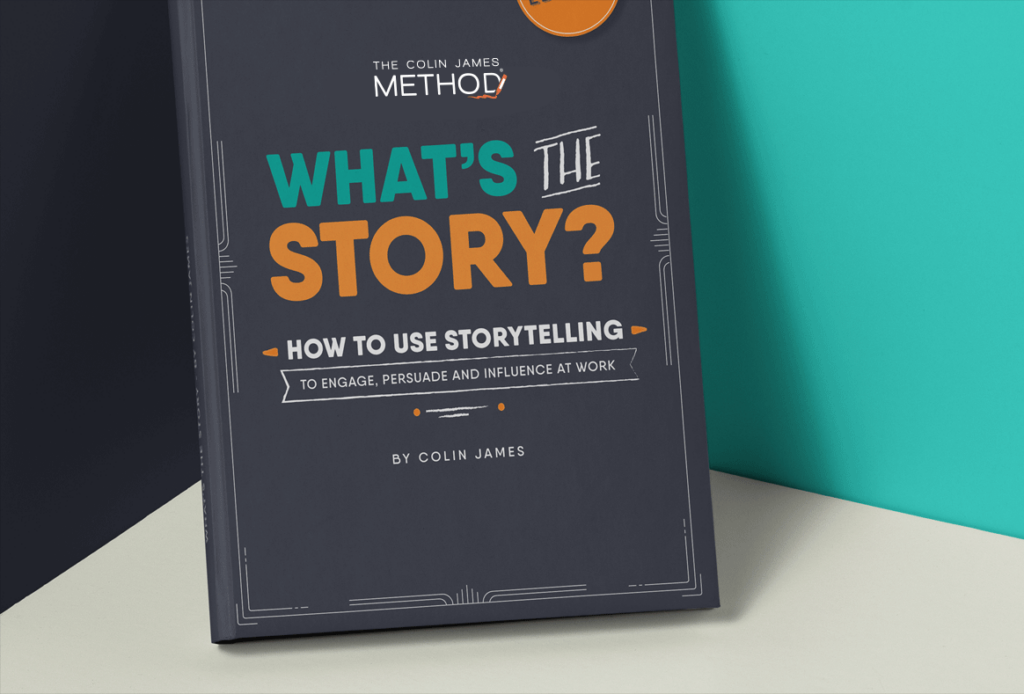I’m sure you’ve heard many experts saying you need to add storytelling to your list of business communication skills. But what does that even mean? For many, the concept of “storytelling” conjures up images of reading Where the Wild Things Are to toddlers at bedtime. While storytime sessions could very well help to reduce stress in the workplace, it’s not really what we had in mind…
We have enough content
One thing we know for sure is that the world is full of content, so delivering more content in presentations, meetings or online should never be the only goal. Real value comes from making this content relevant to your audience, and making the abstract easier to understand. Theoretical knowledge is one-dimensional, while experiential knowledge allows you to share your sensory and emotional experience with others, putting them in the moment completely. In other words, stories can help you gain a deeper understanding and a personal connection to content.
If you are marketing products or services online, recent data shows that 41% of people (and 33% of millennials, those aged roughly 18 to 34 years old) claim to feel overwhelmed by the sheer wealth of choice on the internet, preferring friends’ recommendations on social media rather than searching for content and products themselves. That is why content that truly speaks to an audience and gets to the heart of what they’re experiencing day to day is more important than ever in helping you cut through all the noise.
Storytelling as social proof
Stories provided by you and your clients can provide social proof for any claims you are making about your products or services. If you are a financial advisor, for example, rather than saying your financial advice will be the best they’ve ever had and listing a range of your services, demonstrate your expertise with a story about a client with similar circumstances:
“A 57-year-old small business owner approached me for financial advice 3 years ago. His situation was similar to yours, in that his investment portfolio was heavily biased towards one particular asset class. Based on our advice, he restructured his portfolio, which not only increased his yield by over 15%, but also removed some high-risk elements, allowing him to sleep easier at night. Let’s look at how we can achieve a similar outcome for you.”
Storytelling for inspiration
Stories can also help when we are looking to motivate and inspire someone to use our services or buy into our ideas. You may be familiar with the book Start With Why, written by Simon Sinek, in which he talks about the fact that people don’t buy “what” you do – rather, they buy “why” you do it. So if you are pitching a product or service to a client, or promoting an idea to senior management, explaining why it matters is key.
For example, if I wanted to help people understand my passion for communication coaching and facilitation, rather than just stating that I am passionate about teaching, I would typically tell a story:
“Many years ago, my dream was to become a geography professor at Oxford. I had a strong desire to connect with and help people through teaching. My life took a different path, though, and I traded in my muddy wellington boots for stilettos, and travelled the world for over 20 years in senior corporate communications roles. Despite the apparent glamour and the material rewards of my career, I always felt I was missing a sense of purpose. My dream had never been fulfilled. So I found myself drawn to the world of facilitation and coaching. After joining The Colin James Method®, I realised I had finally reconnected with my true purpose: teaching people how to reach their potential.”
This background portrays my passion for teaching with some historical context. I have tried to show you how I feel about what I do, rather than just tell you that I am passionate.
Storytelling for clarity
Stories don’t necessarily need to be long, though; they can also be simple anecdotes or analogies to help clarify your ideas. For example, a colleague of mine was developing a platform that would connect clients looking for meeting spaces on a casual, hourly basis with companies that were not using their own meeting rooms regularly enough. The colleague described their platform as the “Airbnb of corporate room hire”, which instantly creates a clear picture of the service they offer – a short-term leasing option that takes advantage of underutilised space.
Stories can create social proof, demonstrate desired behaviours, inspire and unite people and provide clarity. Stories have the power to move people on an emotional level. But where do we find them?
There are stories all around us just waiting to be identified and documented. We all have thousands of stories in our past. To create and share great stories, you firstly need to become a great observer. Once you have the details of a story, follow the methodology in our storytelling e-book and you will find your business communication skills and your ability to influence others and shift the way they feel, think and behave will be dramatically enhanced.

The Colin James Method® Facilitators train corporate executives to improve their professional communication skills with a proven methodology. Our highly trained Facilitators and Coaches are recognised for their experience in their fields and have worked with many individuals and organisations around the world to master the art of communication.










